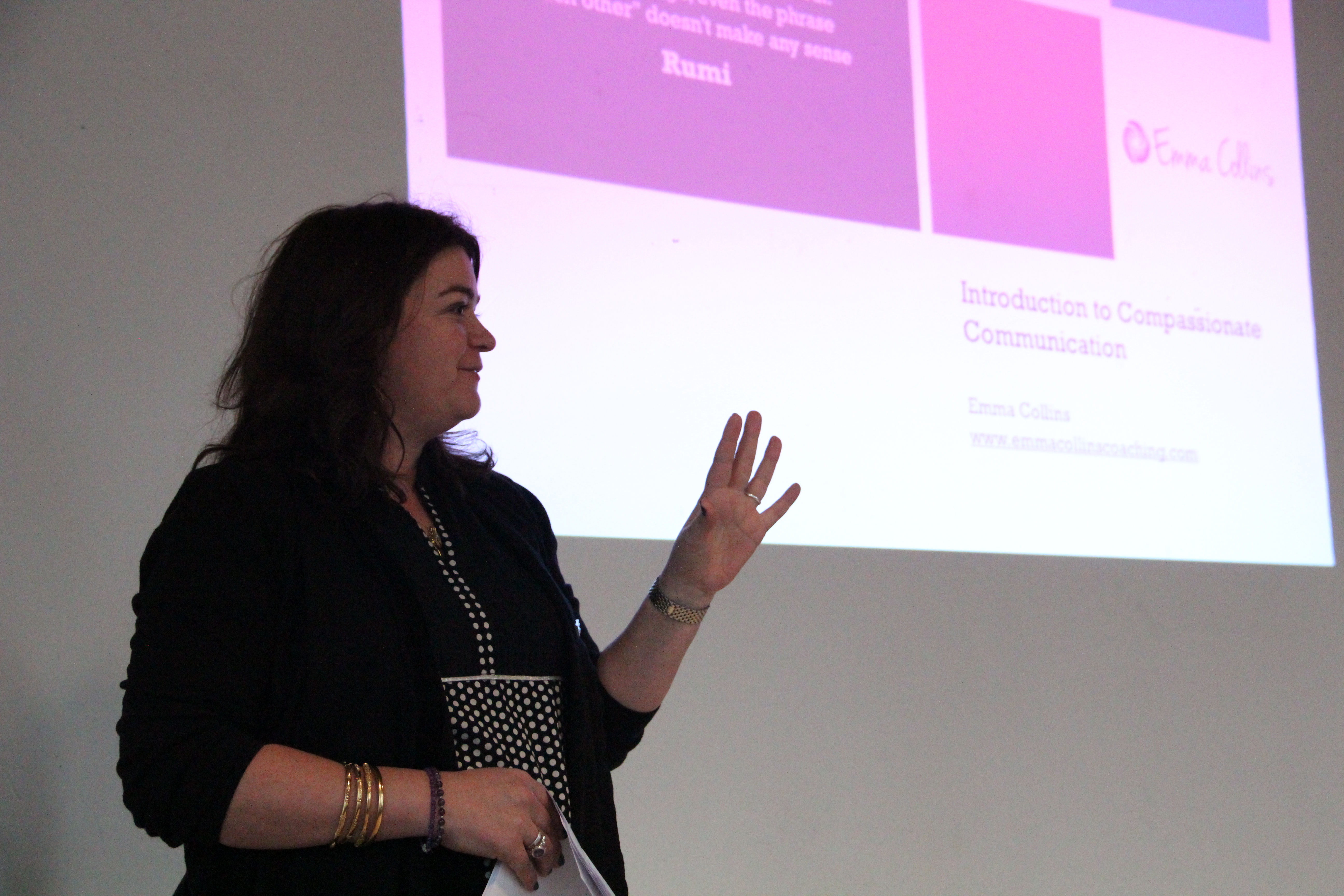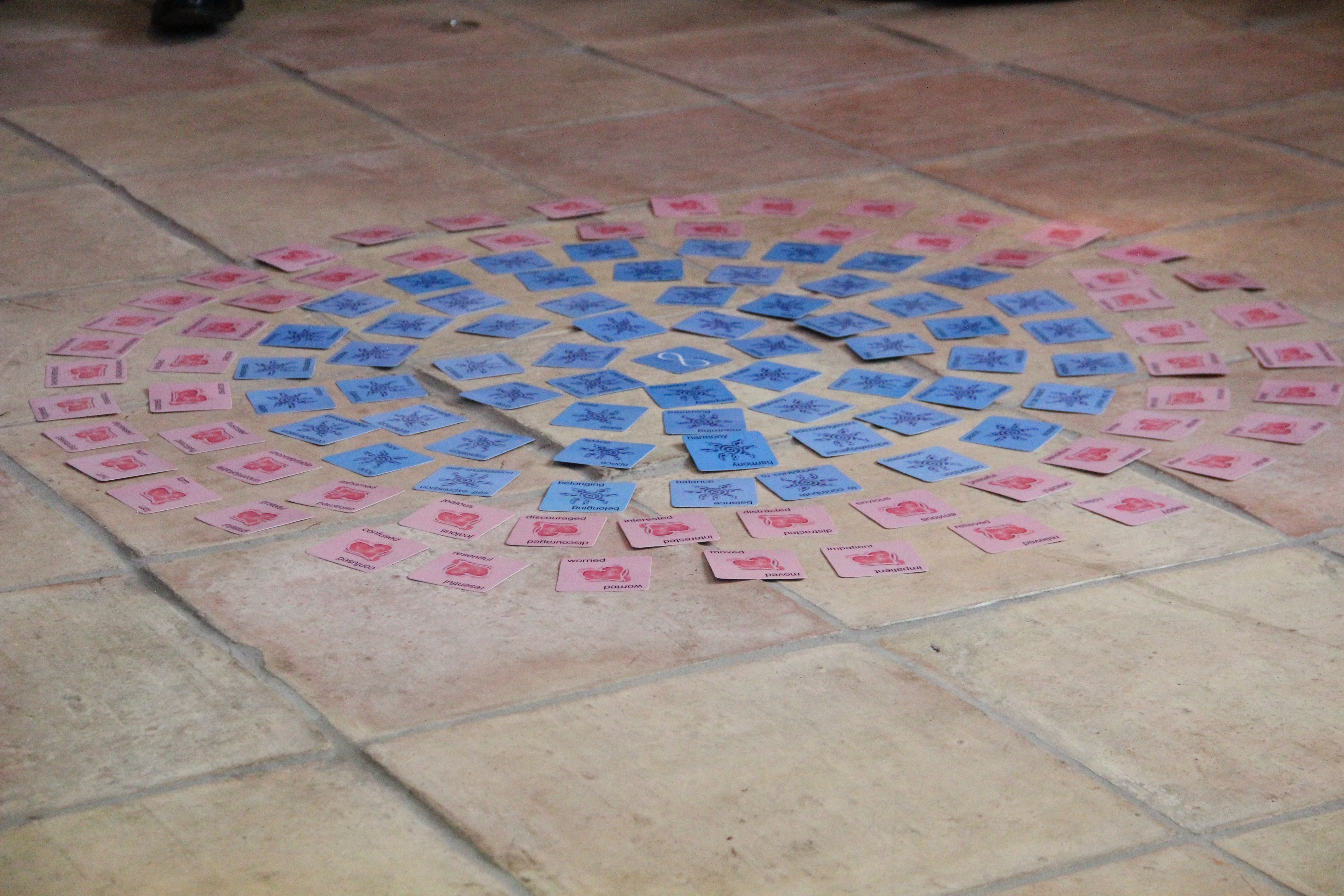On
March 31st a very interesting, inspiring and enriching event was organised in Nyon. The theme of the evening was compassionate communication; the speaker was
Emma Collins, a lady who has found the key to her existence in studying compassionate communication and in becoming a transitional coach.

I clearly remember the day I read about the event on the website, it was about two months before the event took place and I immediately registered. I was curios and tempted by the topic. But I immediately asked myself the following questions: what is compassionate communication? What does it mean? How could it be useful in my day to day life? I don’t know what everyone expected from the evening, but I know for sure that we all were very exciting and curious.
The event was organised in a place called
True Colours; I think that the choice of the location was just perfect: a very pleasant location that could host an event during which the atmosphere between the attendees was inspiring, friendly and comfortable. Personally I felt right at home.
We were about 20 people, including the speaker. She really impressed me because of her positive energy, she was not exaggerating, she did not speak loudly, she did not pretend to be the best; she simply was there amongst us and shared her expectations regarding the evening and some private details about herself. She cared about the group and she smiled all the time with her eyes. From the very beginning the evening felt positive.
The event was interactive; we did some exercises to increase

our self awareness. I would like to share one particular exercise with you: Emma put out some examples of possible emotions and gave us some situations (for example: how would you feel if you, in your work group, would be the only one not enjoying the project you’re following?). Our task was to show how we would feel and it was impressive to realise how everyone could have very different feelings: from happiness to worry; from curiosity to anxiety.
But going back to the question I asked at the beginning; What is Compassionate Communication? It is about knowing and understanding ourselves and the reasons behind our emotions, in order to better understand others and the world around us. Compassionate Communication is about empathy: knowing yourself, understanding why you experience certain emotions and then, listening to others, understanding the inner reasons of their behaviours, even of the behaviours that just drive you crazy; listen, accept, do not try to teach others how to live, do not judge, do not try to change people or manipulate them. Know yourself and accept yourself and your emotions.
But Compassionate Communication is even more than this because it is not something that we simply experience in private; on the contrary, it is something that can… or… must be applied to how humans communicate with each other; and even more than that: it is about peace and non-violence. Wow, isn’t this a wonderful way to interpret the human being and to relate to people? Isn’t it inspiring? How many times have you received tips that you were not ready to accept just because you wanted to be heard? How many times have you tried to teach someone how to live his/her life? How many times have you been in situations where you just didn’t understand someone else’s point of you? Think about the world we live in: how many wars have been fought because of misunderstandings and inability to communicate and accept? How many fights between people exist in everyday life? How many times were you not able to decipher someone else’s behaviour?
The answer is simple: many, many times. That is it: when it is difficult to place yourself in someone else’s shoes people can experience frustration, generate misunderstandings and close the doors to communication.
Emma put the focus on a very important issue: every kind of behaviour, even the more unintelligible, is an attempt to meet a need. There are needs that are universal, people need to satisfy them, for example: the need for love, recognition, intimacy.
If we understand that key point, we would be able to understand ourselves and to communicate with others in a more satisfactory way. Of course, it is not something that can happen from one day to the next: knowing ourselves is something that takes time and courage; accepting others is even more difficult. But if we can do that we could revolutionize our life and our relations with the world: not to change people but to understand them.
I think that all the attendees went home with some food for thought…